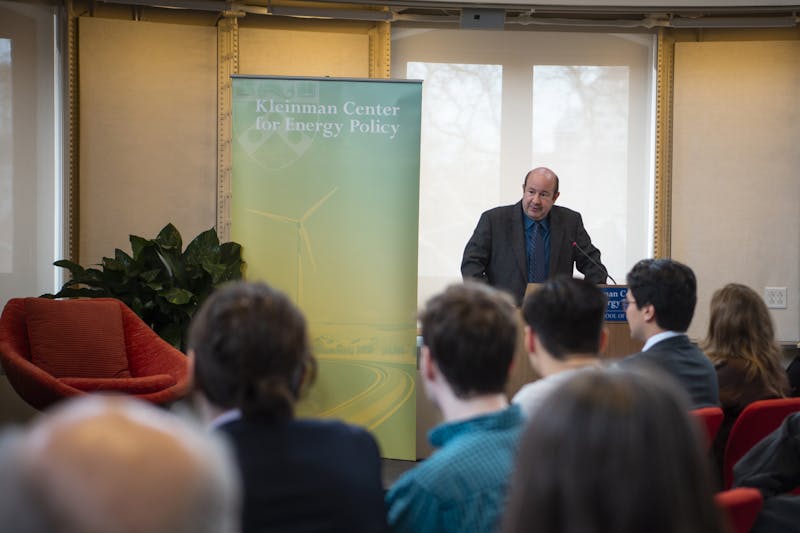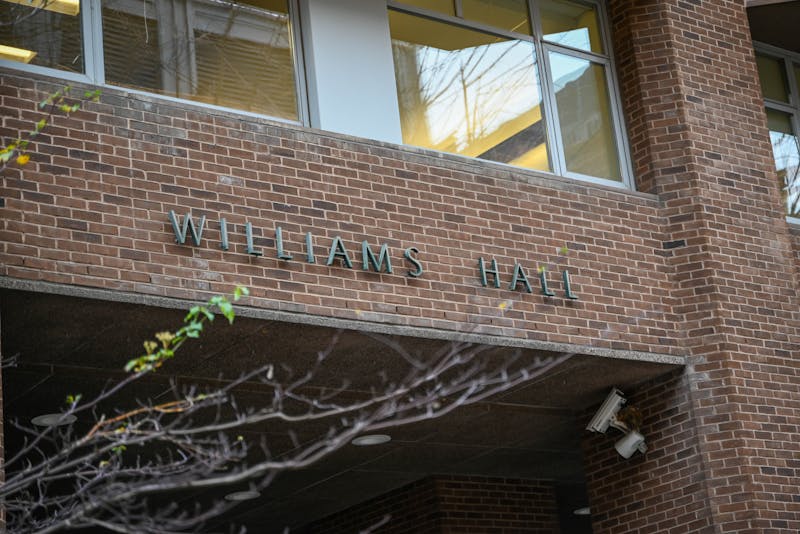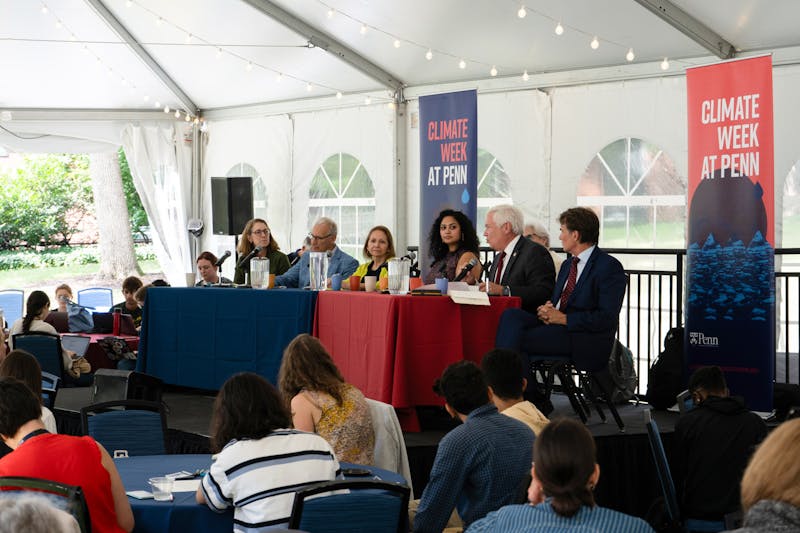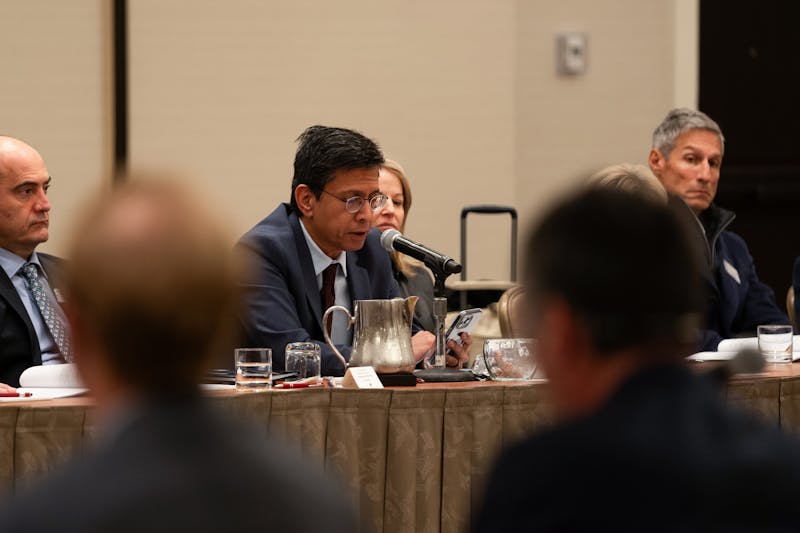
Penn’s fifth annual Climate Week featured events including student and faculty research, yoga, events on the intersection between climate and healthcare, and more.
Climate Week, a yearly tradition at Penn, provides an opportunity for the Penn community to learn about and engage with climate action. The overarching theme of this year’s programming — which ran from Oct. 14-18 — was climate solutions.
“We wanted to convey the urgency of climate change while also offering examples of solutions that are happening today and what students, faculty, and staff at Penn and beyond are working on for the solutions of tomorrow,” Nina Morris, the sustainability director of Penn Sustainability, told The Daily Pennsylvanian.
Throughout the week's events, students and faculty shared their research, climate revolution involvement, and activism through presentations, poster sessions, and panels. More casual events included the Climate Week dinner and a yoga class. Many of these events took place in the climate tent, a temporary structure for panels and presentations set up on Locust Walk outside of Van Pelt Library.
Director of the Environmental Innovations Initiative Katie Unger Baillie added that another priority of Climate Week is to allow every community to find their place in the realm of discussing climate and sustainability.
“One of our mottos is for every person at Penn to find their place in the climate movement, not just to target the most active and most engaged. That's why Climate Week has the structure that it does … We try to have a diverse spectrum of events,” Unger Baillie said.
Another focus of the week and the ongoing climate week done at Penn around the year was drawing from expertise across academic disciplines. Morris, in her interview with the DP, encouraged students and faculty members to think about how climate change shows up in their own lives or areas of study.
On Tuesday, Michael Mann, the Presidential Distinguished Professor in the Department of Earth and Environmental Science and director of the Penn Center for Science, Sustainability, and the Media, was appointed Penn's Vice Provost for Climate Science, Policy, and Action.
“The momentum of having [Mann] of that stature in the University is really important, also just as a convening force to coordinate and build on the great work that's already being done across the university and build connections between areas of disciplinary expertise,” Unger Baillie said.
In the 1.5 Minute Climate Lectures event on Wednesday, six faculty members shared their their fields' connections to the climate crisis, highlighting the interdisciplinary nature of Penn’s approach to climate change. The short lectures spanned topics from climate politics to food insecurity to electricity shortages to maintaining climate optimism.
During her presentation titled "Climate Policy in a Polarized Country: Elections Matter," assistant professor of Political Science Parrish Bergquist discussed the potential for clean energy investments which create economic investments in communities to "generate their own political momentum." Parrish added that "integrating climate policy with economic opportunity is smart politics," citing that many Americans determine who to vote for based on their feelings about the economy.
In her presentation, Russian and East European Studies professor and department chair Kristen Ghodsee discussed her identity as a "scholar of utopias," suggesting that "radical hope has often led humanity through its worst crises across history."
“And in every culture, there is always a utopian 1% — a marginalized group of dreamers whose boldest visions are initially rejected — but they dream on until their ideas start to seep in and spread out and verbal up to catalyze profound social change," Ghodsee said. "They win by refusing to accept that the way the world is is the way the world has to be.”
The fourth and newest iteration of the Penn Climate Sustainability Action Plan is set to launch the third week of November and be accompanied by a report of the progress made by Penn in sustainability over the past five years. Morris said that the Penn Environmental Sustainability Advisory Committee is currently developing goals and strategies to further the plan and is working to identify the priorities for the coming year to target greenhouse gas emissions, waste, and promotion of campus biodiversity.
“Some of the goals people will see on this will be more ambitious than what we’ve seen in the past,” Unger Baillie said.
Morris also said that Penn has moved a step closer to its goal of 100% carbon neutrality by 2042. Penn recently announced that it will be purchasing all electricity produced at two new solar facilities, which became operational in late 2023, in Central Pennsylvania.
Both of these facilities have begun producing power and will produce approximately 70% of the total electricity demand from the University and the University of Pennsylvania Health System from renewable sources, Morris said.
“There is a lot of inspiring work happening to address the climate emergency, here at Penn and beyond … The work of climate and sustainability action is for everyone, and if you need an official welcome to the movement, this is it. Come on in, you are needed and welcomed,” Morris said.
The Daily Pennsylvanian is an independent, student-run newspaper. Please consider making a donation to support the coverage that shapes the University. Your generosity ensures a future of strong journalism at Penn.
Donate












